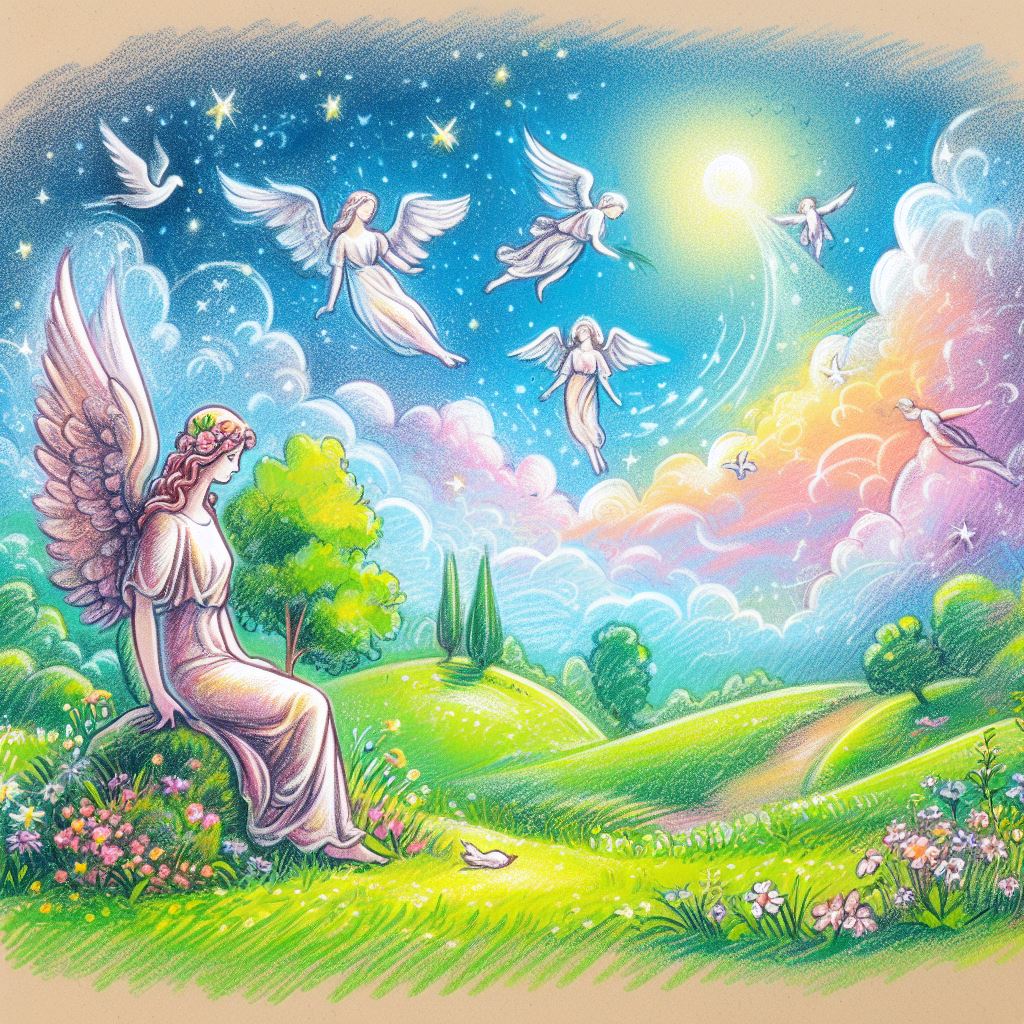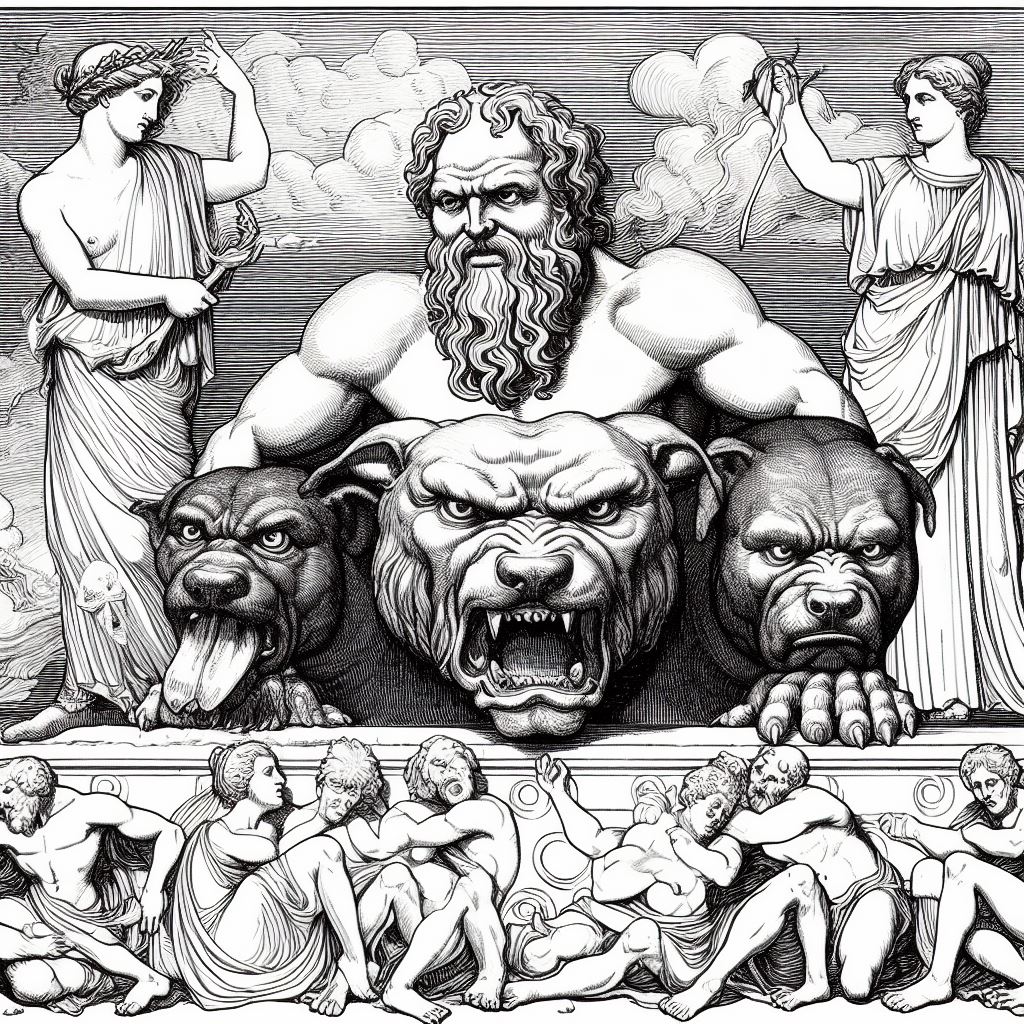Not all NDE survivors report encountering God. Many find themselves in the company of spiritually superior beings—entities open to answering questions or reminding the departed of a mission to fulfill, requiring their return to their bodies and continued existence
Those who do encounter a superior being, often labeled as God, universally agree that the term falls woefully short. It inadequately captures the essence of the being they met, yet no alternative word in any human language proves more fitting.

Those who do encounter a superior being, often labeled as God, universally agree that the term falls woefully short. It inadequately captures the essence of the being they met, yet no alternative word in any human language proves more fitting.
Upon reading numerous NDE accounts from the NDERF foundation archives, a pattern emerges. The soul, post-death, typically arrives at an intermediate realm—not its definitive destination, but a transitional phase between the material world and the soul’s ultimate abode.
In this intermediate state, the interphase between life and death, NDE experiences vary based on individuals’ religious beliefs. Expecting Jesus? He awaits. Muslim? Angels guide through scenic landscapes to perhaps a golden temple. Xiao Yu provides an amusing twist. He found himself queuing for a numbered ticket, the line under military guard. My intuition suggests that diversity arises because one encounters what they are psychologically predisposed to meet. If a fervent Hindu were to find Jesus or a Christian priest Osiris —the shock would be significant.
The reliability of NDE experiencers’ interphase accounts hinges on their pre-existing expectations. Encounters with Jesus, the angel Gabriel, Krishna, or God are not universal proof of their objective reality.
Robert Monroe in his famous book Journeys out of the body gave an account on why the entrance into the interphase between life and definitive death is “customized”
“one does perceive what seems to be solid matter as well as artifacts common to the physical world. These are brought into "existence," evidently, by three sources.......The third source I assume to be
a higher order of intelligent beings more aware of the Locale II environment than most inhabitants. Their purpose seems to be that of simulation of the physical environment-temporarily, at least -for the benefit of those just emerging from the physical world, after death.
This is done to reduce trauma and shock for the newcomers by introducing familiar shapes and settings in the early conversion stages.”
If there isn’t a God directly influencing our spiritual lives, one might deduce that the intricate and varied nature of NDE experiences stems from something other than a divine plan.
Consider the theory that information is a substance, posited by M. Vopson . If this substance, created by our thoughts and emotions, persists beyond our physical demise, one could conclude that the existence of the soul lacks a supernatural element. If the soul is as natural as the body, existing in a spiritual realm made of the same substance, it must adhere to certain laws—perhaps not physical, but metaphysical.
Let’s envision how ancient humans might have perceived this world. Though we needn’t go as far back as Australopithecus or Neanderthals. Primitive humans likely encountered a disorganized spiritual realm where souls fought for any available energy. As mentioned in previous posts, if the spiritual realm is an information dimension, it lacks its own energy sources, which reside in the material realm, leading to the frequent hunting of the newly deceased to obtain from him as much energy as they carry.
Descriptions of the afterlife in ancient religions are often dark. The Greeks and Assyrians believed the deceased dwelled under the earth, subject to the rule of cruel, sometimes egoistic gods. That would fit the description of an afterlife where the strongest older spirits take as much as they can from the newly arrived. In contrast, religions like ancient Chinese or African animistic ones, and possibly pre-Roman Iberian beliefs, introduced a new concept— praying to ancestors for a better afterlife and assistance in daily life.
Contact with deceased ancestors may indeed be beneficial, as love is described in many NDEs as a potent energy transmitter. In the original afterlife, while predators hunted the recently deceased, powerful psyches and souls whose goodnes in life assured a stable income of reviving energy from their living relatives successfully defended against energy thieves. As time elapsed, mirroring the evolution of humanity from the Paleolithic to the modern era—where tribes coalesced into cities, cities amalgamated into countries, and countries forged empires—a similar progression unfolded in the afterlife. Small groups would have united to construct structures capable of enhanced defense, a feat unattainable for egotistical and malevolent souls predisposed to preying on the weaker.
Eventually, benevolent souls could have recognized the value of the energy from the recently deceased and developed the technology and methods to repair and adapt most souls. This narrative envisions a society far beyond my imaginative capacity, pondering the wars, technologies, and cosmic explorations in a realm where death is absent. What tools, akin to our stone axes or quantum computers, marked their progress from ancient to modern technologies? There is no need for a God in this description, but was there a point when those spirits explored the cosmos and encountered conscious beings from other planets? How would they call those being if they were many times more evolved and intelligent than them? How wous you call them?

